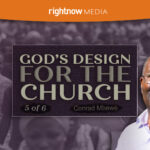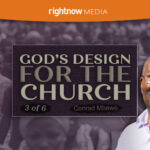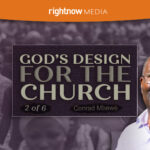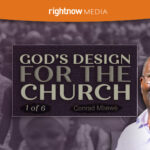Most of the articles in this series on who should lead God’s church have been taken up with the biblical office of elders. But in my previous article we turned to consider the appointment and role of deacons. Looking at Acts 6:1-4, I argued that deacons can take over certain responsibilities from the elders—such as taking care of the needy and managing finance or properties—as the church grows larger. However, this doesn’t mean anyone can serve as a deacon. When you read about the choosing of the first deacons in Acts 6, you discover that the apostles were concerned that those who were chosen were appropriately qualified.
There Are Some Serious Requirements
We read the apostles saying, “Therefore, brothers, pick out from among you seven men of good repute, full of the Spirit and of wisdom, whom we will appoint to this duty” (Acts 6:3). They were looking for truly spiritual and wise men to do this work.
There are hardly any differences from the qualifications Paul gave for elders.
When Paul gave qualifications for deacons to Timothy, there were hardly any differences from the qualifications he gave for elders. He wrote, “Deacons likewise must be dignified, not double-tongued, not addicted to much wine, not greedy for dishonest gain. They must hold the mystery of the faith with a clear conscience. And let them also be tested first; then let them serve as deacons if they prove themselves blameless. Their wives likewise must be dignified, not slanderers, but sober-minded, faithful in all things. Let deacons each be the husband of one wife, managing their children and their own households well” (1 Timothy 3:8-12).
They (Can, But) Don’t Have to Teach
Deacons didn’t need to have the ability to teach, which was a requirement for elders.
The one noteworthy difference was that deacons did not need to have the ability to teach, which was a requirement for elders. If a deacon ended up getting involved in preaching, like Philip in Acts 8:26–40, it was because he was already gifted as such. It is certainly not a requirement for the office of deacon in the church. Deacons were, however, to “hold the mystery of the faith with a clear conscience” (1 Timothy 3:9). That means they were to be grounded in Christian doctrine. In terms of personal godliness and being good leaders in their homes, there is no real difference between the qualifications of elders, and deacons.
What About Deaconesses?
Since we tackled the question of female elders it is worth saying something about female deacons. It is harder to reach a definite conclusion on this subject. Biblically, the office of deacon does not carry any authority. The very name “deacon” is simply the word “servant” in Greek. In that sense, there would be no need to preclude women from this office.
Also, we have the example of Phoebe, who in Romans 16:1-2 is referred to as a “servant” (“deacon” in Greek) of the church in Cenchreae. Others argue that the word there is used in a generic sense and is not referring to an office.
Then there are the women who are included in the list of qualifications for deacons in 1 Timothy 3. Who were they? Were they female deacons or simply women assisting the deacons, or were they the wives of deacons? That remains an open question.
The matter is not as easily settled as that of female elders.
Those who think only males can be deacons sometimes cite the stipulation that they should be “the husband of one wife” (1 Timothy 3:12). This, they say, excludes women from this office. They may also point out that there is no example in the New Testament of a woman being ordained to any office of the church. Thus, the matter of whether women can be deacons is not as easily settled as that of female elders.
This article was adapted from God’s Design for the Church: A Guide for African Pastors and Ministry Leaders, by Conrad Mbewe, Copyright © 2020, pp. 106-108. It is used with the permission of Crossway, a publishing ministry of Good News Publishers, based in Wheaton, IL. Purchase a copy at Christian Book Discounters. You can read a review of it here, as well two series of articles adapted from the book dealing with: (1) The Church and Money; and (2) Church Discipline.














